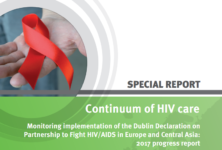Researchers at the Walter Reed Army Institute of Research (WRAIR) and collaborators recently published results of a phase II study which demonstrated that by changing the dosing regimen, the efficacy of malaria vaccine candidate, RTS,S/AS01, was improved to approximately 87%, compared with 63% using the current standard regimen.
Findings from the study were published in the Journal of Infectious Diseases. This study was conducted in a small number of malaria-naïve adults in the US, using the controlled human malaria infection model (CHMI), also referred to as the malaria challenge model.
Malaria continues to have a devastating global impact, infecting more than 200 million people annually and killing an estimated 438,000–most of them young children–in 2015.
The RTS,S/AS01 malaria vaccine candidate –developed by GSK in the early 1980s and, since 2001, in partnership with the global health non-profit PATH for use in young children– is the first vaccine to successfully complete a pivotal large-scale phase 3 trial in Africa. WRAIR’s CHMI also showed the first safety and efficacy of this malaria vaccine in humans and WRAIR’s laboratory in Kisumu, Kenya participated in the Phase 3 trial.
The pediatric RTS,S/AS01 vaccine candidate has been positively reviewed by the European Medicines Agency (EMA) and recommended for pilot implementation in sub-Saharan Africa by the World Health Organization to determine its potential real-world application. This regimen has been shown to reduce cases of malaria by about half over 18 months of follow-up in children 5 to 17 months at first vaccination, and the administration of a fourth dose at 18 months results in an approximately 40% reduction in cases over four years of follow-up. Its ability to protect against malaria waned over time.
In light of the partial efficacy profile of RTS,S/AS01, scientists at WRAIR and partner organizations have continued investigating a variety of strategies to improve the absolute level of the vaccine’s efficacy. In the recently published study, researchers sought to determine if a novel immunization schedule, specifically delaying RTS,S/AS01 administration and reducing dosage of the third vaccination, as well as any following booster dose, would significantly increase the candidate vaccine’s ability to protect against infection.
As part of the study, conducted by WRAIR and involving malaria-naïve adult US volunteers, researchers immunized study participants according to two regimens: a 0-, 1-, 7-month schedule with a fractional third dose (Fx017M) and the current standard 0-, 1-, 2-month schedule (012M). Following the third vaccination, study participants were exposed to malaria-causing parasites, using CHMI, and the extent to which each regimen protected against infection was determined. In the study’s follow-up, the efficacy of an additional fractional dose, or booster, in protecting against a second CHMI was assessed.
Twenty-six of 30 study participants (86.7%) who received the Fx017M regimen and 10 of 16 (62.5%) who received the 012M regimen were protected from infection following the first CHMI. The Fx017M regimen delayed infection longer when compared to the 012M regimen, as well. About 90% of the Fx017M group, who received a 4th fractional ‘booster’ dose and underwent the second CHMI, were protected from infection. Furthermore, four out of five subjects from both vaccination groups infected during the first CHMI were protected against the second, after receiving the fourth (fractional) dose. Study participants did not report any serious health events as a result of receiving the vaccinations, and no safety concerns were associated with reducing dosages.
“Although absolute antibody concentration did not increase with greater prevention of malaria, we were able to demonstrate that this new regimen has a definite impact to improve antibody function in humans,” says lead author, Jason Regules, MD, “This provides plausibility for the observed improvements in vaccine efficacy. We hope that further improvements in the efficacy of RTS,S/AS01 are within reach.” While the study design did not support evaluation of the respective roles of third-dose spacing versus fractioning, the findings provide necessary information to enable further research efforts.
Ashley J. Birkett, PhD, a co-author of the study and director of PATH’s Malaria Vaccine Initiative, says, “With these results in hand, we are planning additional studies in the United States and Africa that will seek to further refine the dosing and schedule for maximum impact and to see whether these early-stage results in American adults will translate into similarly high efficacy in sub-Saharan Africa, a region that bears much of the malaria disease burden. The results of these planned studies won’t be available for several years, however. It therefore remains critical that the pilot implementation for the recommended pediatric regimen of RTS,S/AS01, being led by the World Health Organization, moves forward as soon as possible. We need to help protect as many children as we can, as soon as we can, while we continue to pursue eradication — the only truly sustainable solution to malaria.”
###
This study was funded by GSK, the US Military Infectious Disease Research Program, and the PATH Malaria Vaccine Initiative.
About the Walter Reed Army Institute of Research
Walter Reed Army Institute of Research (WRAIR) is the oldest and most diverse biomedical research laboratory in the Department of Defense. WRAIR provides unique research capabilities and innovative solutions to a range of force health and readiness challenges currently facing U.S. Service Members, along with threats anticipated during future operations. With comprehensive research units in Africa, Asia, and the Caucasus region, WRAIR is comprised of two Centers of Excellence, the Center for Infectious Disease Research and the Center for Military Psychiatry and Neuroscience.


 ПОИСК ПО САЙТУ
ПОИСК ПО САЙТУ  поиск по ресурсному центру
поиск по ресурсному центру 


